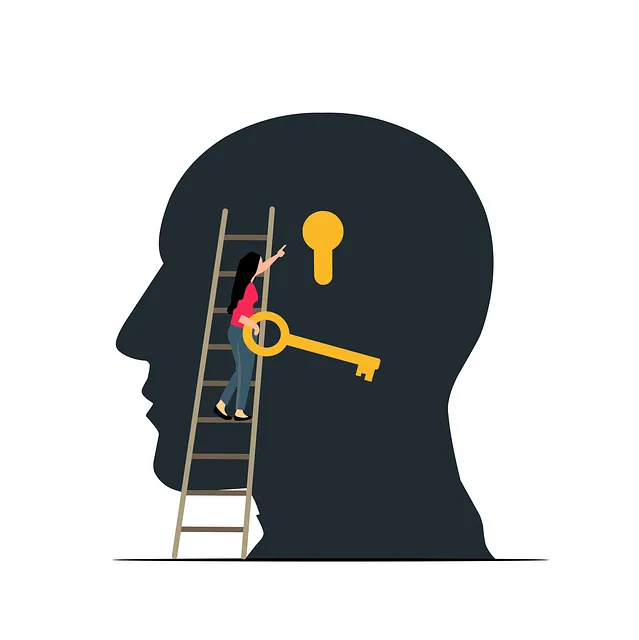Mental health advocacy groups like Kaiser and Golden are transforming societal perceptions of mental illness through education, resources, and community engagement. They offer practical guides and programs that promote early intervention, self-care, and positive thinking, making mental health support more accessible and less stigmatized. By sharing personal stories, organizing events, and providing step-by-step resources for accessing care, these organizations empower individuals to take charge of their well-being using the "Golden How to Get Mental Health Help Kaiser" approach, fostering a supportive community that prioritizes mental health for all.
Mental health advocacy initiatives play a pivotal role in fostering open conversations and breaking down stigmas surrounding psychological well-being. This article explores various facets of this crucial movement, offering insights into how organizations like Kaiser and Golden are revolutionizing mental healthcare access. We’ll guide you through understanding the core principles of advocacy, the impact of community engagement, and real-life success stories. Learn how these initiatives empower individuals to seek help and navigate resources effectively, just like accessing any other essential service, with Kaiser and Golden as prime examples.
- Understanding Mental Health Advocacy: A Key to Breaking Stigma
- The Role of Organizations: Kaiser and Golden in Promoting Mental Well-being
- Accessing Mental Health Services: A Guide for the Confused
- Community Engagement: Empowering Individuals to Take Action
- Success Stories: How Advocacy Initiatives Change Lives
Understanding Mental Health Advocacy: A Key to Breaking Stigma

Mental health advocacy plays a pivotal role in fostering open conversations about mental well-being and breaking down the barriers associated with seeking help. It is a powerful tool to challenge societal stigmas, reduce discrimination, and promote understanding. By advocating for mental health, individuals can contribute to creating an environment where people feel comfortable discussing their struggles and seeking appropriate support. This process involves raising awareness through various channels, educating communities about different aspects of mental health, and encouraging early intervention.
Advocacy initiatives can range from sharing personal stories and experiences to organizing community events, workshops, or campaigns. For instance, organizations like Kaiser offer resources and programs that advocate for mental well-being, emphasizing the importance of seeking help. They promote self-care practices, social skills training, and positive thinking as essential tools for managing mental health. These efforts collectively contribute to a more inclusive society where individuals can access the Golden How to Get Mental Health Help without fear or judgment.
The Role of Organizations: Kaiser and Golden in Promoting Mental Well-being

Mental health advocacy initiatives are crucial in promoting awareness and destigmatizing mental illness. Organizations like Kaiser and Golden play a pivotal role in this regard. Kaiser, a renowned healthcare provider, offers comprehensive services that encompass not just treating mental health disorders but also emphasizing self-esteem improvement and resilience building. Their approach includes regular risk assessments for mental health professionals to ensure the highest quality care.
Golden, on the other hand, focuses on innovative strategies to get people the mental health help they need. They advocate for accessible resources and education, ensuring that individuals from all walks of life can navigate their mental health journeys effectively. By combining advocacy with practical solutions, these organizations contribute significantly to fostering a healthier and more supportive society for mental well-being.
Accessing Mental Health Services: A Guide for the Confused

Navigating mental health services can be a daunting task, especially when feeling confused or overwhelmed about where to turn. The Kaiser network offers valuable resources for those seeking guidance on accessing appropriate care. Their comprehensive guides provide a “how-to” for understanding one’s options, ensuring individuals receive the best support tailored to their unique needs.
For many, the first step is recognizing personal struggles and acknowledging the importance of mental well-being. This self-awareness paves the way for exploring various resources, such as online therapy platforms or local community support groups. Additionally, adopting a consistent self-care routine development can significantly enhance stress management skills, incorporating compassion cultivation practices to nurture one’s mental health.
Community Engagement: Empowering Individuals to Take Action

In the fight for mental health advocacy, community engagement plays a pivotal role. Encouraging individuals to take action within their communities fosters a culture of support and understanding. Kaiser recognizes the power of collective efforts in promoting mental wellness, encouraging folks to initiate conversations, dispel stigma, and offer guidance. This involves utilizing resources like mental health journals and journaling exercises to track moods, document progress, and reflect on personal growth. By integrating these practices into daily routines, individuals can gain valuable insights into their emotional well-being.
Furthermore, community engagement equips people with essential tools for conflict resolution techniques, enabling them to navigate interpersonal challenges more effectively. In addition to mood management strategies, these initiatives empower residents to become advocates for themselves and others, ensuring a network of support that extends beyond professional help from organizations like Kaiser. Through active participation, individuals can contribute to creating a more inclusive and compassionate environment where mental health is prioritized.
Success Stories: How Advocacy Initiatives Change Lives

Mental health advocacy initiatives have proven to be powerful tools for transforming lives and fostering communities that support overall well-being. Success stories abound, highlighting the impact of dedicated individuals and organizations working to dispel stigma and promote mental health services. Take the example of Golden How to Get Mental Health Help Kaiser, a grassroots movement that has successfully increased access to mental healthcare resources for underserved populations. Through community engagement, education, and collaboration with local healthcare providers, this initiative has not only improved individual lives but also contributed to a more culturally sensitive mental healthcare landscape.
The power of these initiatives lies in their ability to address the unique challenges faced by different communities. Incorporating Cultural Sensitivity in Mental Healthcare Practice ensures that services are tailored to meet the needs of diverse populations, fostering trust and encouraging individuals to seek help without fear of judgment. Additionally, Mental Health Awareness campaigns have played a pivotal role in normalizing conversations about mental health, empowering people to recognize their inner strength and develop coping mechanisms. These advocacy efforts collectively contribute to a more inclusive and supportive environment where everyone has the opportunity to thrive.
Mental health advocacy initiatives, as exemplified by the work of organizations like Kaiser and Golden, play a pivotal role in breaking down stigma and promoting well-being. By understanding the power of advocacy, engaging communities, and sharing success stories, we can foster an environment where everyone has access to the mental health services they need. Following the guidance provided by such initiatives, individuals can navigate the available resources more effectively, ultimately enhancing their quality of life. For those seeking help, remembering that there is always a path forward and that support is available is crucial. Whether through Kaiser’s comprehensive programs or Golden’s empowering community engagement, there is hope for everyone to achieve lasting mental health and well-being.






